275 MacLaren Street, Ottawa, ON K2P 0L9
Research Start-up Summary and Abstract:
The project’s title: Mite Achimowin means ‘heart talk’ in Cree. The mite (heart) achimowin (talk) concepts carry wisdom of teachings that involve connections between a person’s physical body, mind and spirit. Mite Achimowin is an arts-based research and knowledge transfer project that is founded through the digital stories of First Nations women’s concepts of heart. The research team collectively brings expertise in linguistics, history, health, and community – based research methodologies to this innovative decolonizing research study.
The question that the researchers seek to resolve is: “What is the knowledge held by First Nations women, their culture and language on caring for one’s heart; how has that way of being been disrupted; and can Indigenized methods of communication relate that understanding to euro-medicine and First Nations communities?”
Project participants are being recruited from two urban areas, Winnipeg and The Pas (Opaskwayak Cree Nation). Knowledge exchange activities will take place in those communities in ways that include community public screenings and learning circles in Winnipeg between First Nations women research participants (digital storytellers) and Indigenous undergraduate and graduate students, non-Indigenous researchers and educators from the University of Manitoba.
There are two objectives:
1) To use oral history and arts-based research approaches to explore culturally-rooted knowledge concerning and oppressive mechanisms influencing the caring for one’s heart among FN women;
2) To use a conversational research approach to explore mechanisms for integrating culturally- rooted knowledge of the heart into undergraduate and graduate curriculums.
Engagement objectives:
Up to eight First Nations women will make digital stories over the course of a week on their experience of caring for one’s heart. We will create a safe space to discuss factors that negatively impact the well- being of FN such as transitions from traditional to westernized lifestyles and diets; poverty; poor access to quality foods; the legacy of residential schools; racism; culturally unsafe care; and economic and geographic marginalization. Expressions, as digital stories, of the FN women’s experiences, thoughts, and knowledge of caring for one’s heart will provide an opportunity to share and express themselves within community; rather than participate in a one-way extracting research process (such as interviews).
The second phase of the study will initiate dialogues with euro-western human service providers and within First Nations to extend our collective understanding of how to care for one’s heart. Learning circles with undergraduate and graduate students will inform strategies to integrate culturally-rooted knowledge in relevant curriculum. The study will create a webpage to support distribution of digital stories and study learnings. The choice to participate in learning circles and digital story sharing resides with the FN women storytellers.
Methodology:
A Two-Eyed Seeing approach (34) along with the decolonizing methodology (38) of digital storytelling (40) will govern this study. Two-Eyed Seeing, articulated by Mi’Kmaw Elders Albert & Murdena Marshall as seeing and respecting both Indigenous and biomedical ways of knowing (41). The project combines the tradition of oral storytelling with digital technology and oral history methods, using both a conversational method (Learning Circle) and an arts-based research approach called digital storytelling (39,40). A digital story is a participant-created 3-5 minute video using their own photos, video recordings, and narration.
Collaborating Friendship Centre and/or other urban Aboriginal organization:
First Nations Health and Social Secretariat of Manitoba
Opaskwayak Cree Nation
University of Manitoba
Main contact and Principal Investigators:
Lorena Sekwan Fontaine
Assistant Professor of Indigenous Studies, University of Winnipeg
[email protected]
Dr. Annette Schultz
Psychosocial Oncology and Cancer Nursing Research, I. H. Asper Clinical Research Institute and Associate Professor, College of Nursing, Faculty of Health Sciences, University of Manitoba
[email protected]
Article featured by NCCAH:
https://www.ccnsa-nccah.ca/563/mite_achimowin_-_Heart_Talk.nccah
Podcast recording available here